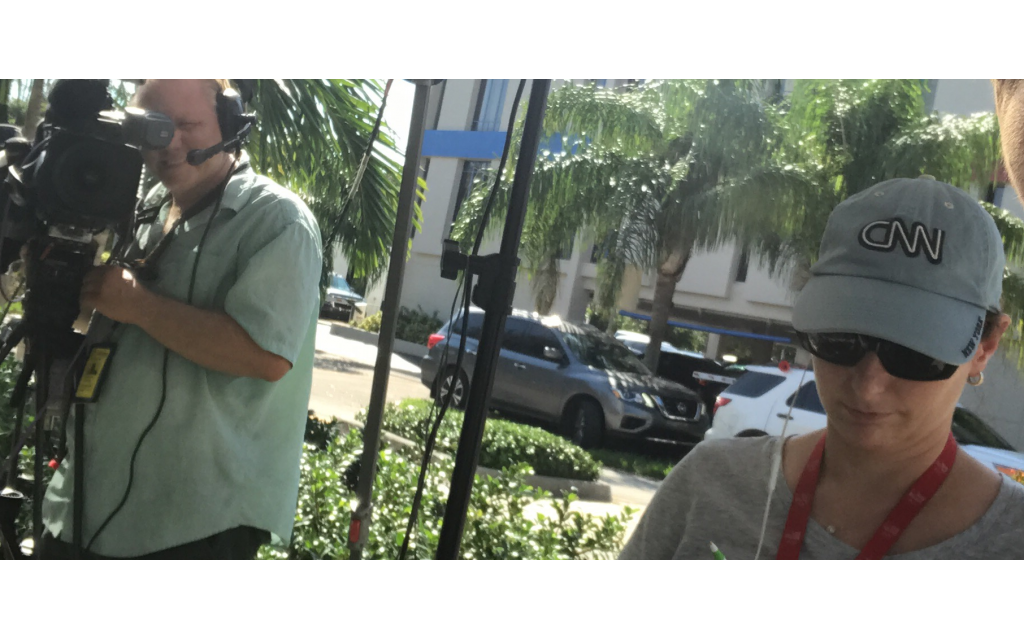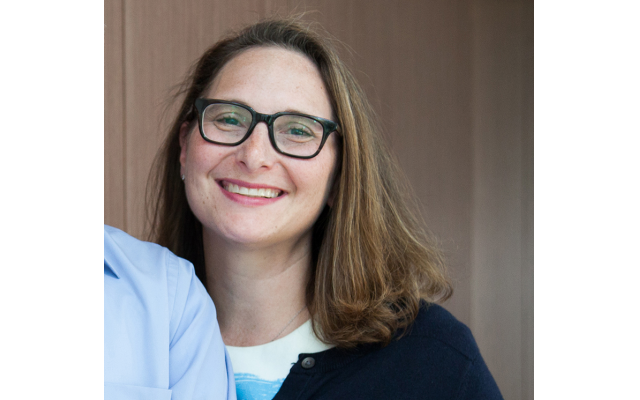Writing Whiz Goes from Sinatra to Ebola
Druid Hills resident Debra Goldschmidt is a supervising editor for CNN’s Health Unit.
After 37 years with the Atlanta Journal-Constitution and now with the AJT, , Jaffe’s focus is lifestyle, art, dining, fashion, and community events with emphasis on Jewish movers and shakers.
Debra Goldschmidt built a strong foundation in journalism, freelancing, field logistics and writing scripts before landing in 2014 as a supervising editor for CNN’s Health Unit, bringing her back to her start as an intern. She is described on LinkedIn as an “all utility player.” She spent much of her career in 24-hour cable news working in the medical unit and in bureaus, and on the national desk, show teams, and documentary teams.
She left the newsroom briefly to earn her master’s degree from top-ranked Columbia University Graduate School of Journalism and completed a distinguished fellowship in public health journalism at the Centers for Disease Control and Prevention. A wife and mother of three, Debra is a member and executive board member of Young Israel of Toco Hills.
Hear about her mission as a journalist.
Jaffe: What does being an editing supervisor entail?
Goldschmidt: I am constantly assessing the news to decide on our coverage plans, what to assign to which writers, who will handle it on TV, what spot news to cover, and what stories go on the website.

Jaffe: What are some of the most defining stories you have broken?
Goldschmidt: I covered many catastrophes: September 11th, Hurricane Katrina, Ebola. Early in my career, there was the mapping of the human genome.
I also produced a documentary about women who marry prisoners. That’s always a conversation starter.
Jaffe: What are some of the “hot” stories you have covered?
Goldschmidt: When I was on the national assignment desk I worked overnight. When celebrities died, we had to call family members to confirm. The first big celebrity death on my watch was Frank Sinatra, as was the U.S. Embassy bombing in Kenya.
This was before the internet and papers being posted online. Hard copies of the newspapers were delivered at 4 a.m. and I’d read them and flag the stories we needed to act upon.
In 1997, I worked with Elizabeth Cohen, CNN’s senior medical correspondent, to uncover the dangers of the diet drug combination, fen-phen, which was later pulled from the market.
Jaffe: When watching “on air” news anchors, we wonder if they write their own material or you do it for them?
Goldschmidt: That depends. Some anchors read scripts while others ad-lib. Often, we suggest questions, prepare screen graphics to show the results of scientific study, and select video used in a segment. Preproduced stories are sometimes written by producers or correspondents.
Jaffe: What are the health crises we should be concerned with today?
Goldschmidt: There are infectious disease outbreaks such as flu, E. coli, salmonella and Ebola, and the increase in this polio-like illness, AFM, [acute flaccid myelitis] that is striking mostly young children. The ongoing opioid crisis, which isn’t being solved quickly, and as opioids are more difficult to obtain, other drugs such as meth and cocaine show increases.
Other concerns: drug prices, access to health care, and the impact social media has on society.
Jaffe: Are you affected by the CNN drumming as “fake news”?
Goldschmidt: It certainly does not feel good, but our job is to report the news accurately, which is what we strive to do. Part of my job is to make sure our reporting upholds the standards of CNN and adheres to journalistic integrity, and that’s what I do each day.
Jaffe: So what’s your bottom line mission as a journalist?
Goldschmidt: I reflect on a 2002 story I produced for Dr. Sanjay Gupta, CNN’s chief medical correspondent, where we followed triplets who had cerebral palsy and were treated with a cutting-edge procedure clipping spinal nerves. A mother in Jamaica saw the piece and arranged for her son to have the surgery. That’s journalism that matters. People let us into their lives when they are most vulnerable and give us the privilege of sharing their story, … and it helps others.




comments